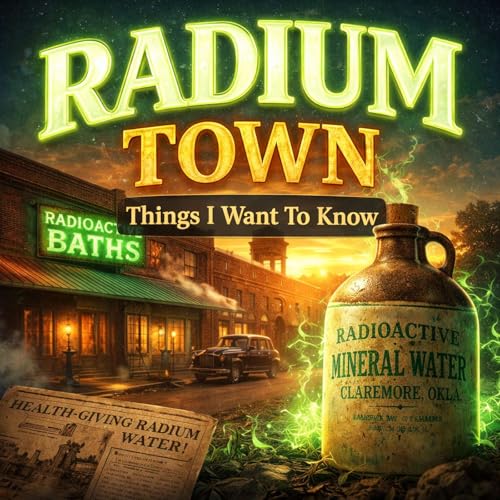
Things I Want To Know
No se pudo agregar al carrito
Add to Cart failed.
Error al Agregar a Lista de Deseos.
Error al eliminar de la lista de deseos.
Error al añadir a tu biblioteca
Error al seguir el podcast
Error al dejar de seguir el podcast
-
Narrado por:
-
De:
-
Paul G Newton
Ever wonder what really happened — not the rumors, not the Netflix version, but the truth buried in forgotten police files? We did too.
We don’t chase conspiracy theories or ghost stories. We chase facts. Through FOIA requests, interviews, and case files scattered across America, we dig through what’s left behind to find what still doesn’t make sense. Along the way, you’ll hear the real conversations between us — the questions, the theories, and the quiet frustration that comes when justice fades.
Each episode takes you inside a case that time tried to erase — the voices left behind, the investigators who never quit, and the clues that still echo decades later. We don’t claim to solve them. We just refuse to let them be forgotten.
Join us as we search for the truth, one mystery at a time.
© 2026 FMS Studios / Paul G Newton-
 Mar 2 202658 m
Mar 2 202658 mNo se pudo agregar al carrito
Solo puedes tener X títulos en el carrito para realizar el pago.Add to Cart failed.
Por favor prueba de nuevo más tardeError al Agregar a Lista de Deseos.
Por favor prueba de nuevo más tardeError al eliminar de la lista de deseos.
Por favor prueba de nuevo más tardeError al añadir a tu biblioteca
Por favor intenta de nuevoError al seguir el podcast
Intenta nuevamenteError al dejar de seguir el podcast
Intenta nuevamente -
 56 m
56 mNo se pudo agregar al carrito
Solo puedes tener X títulos en el carrito para realizar el pago.Add to Cart failed.
Por favor prueba de nuevo más tardeError al Agregar a Lista de Deseos.
Por favor prueba de nuevo más tardeError al eliminar de la lista de deseos.
Por favor prueba de nuevo más tardeError al añadir a tu biblioteca
Por favor intenta de nuevoError al seguir el podcast
Intenta nuevamenteError al dejar de seguir el podcast
Intenta nuevamente -
 57 m
57 mNo se pudo agregar al carrito
Solo puedes tener X títulos en el carrito para realizar el pago.Add to Cart failed.
Por favor prueba de nuevo más tardeError al Agregar a Lista de Deseos.
Por favor prueba de nuevo más tardeError al eliminar de la lista de deseos.
Por favor prueba de nuevo más tardeError al añadir a tu biblioteca
Por favor intenta de nuevoError al seguir el podcast
Intenta nuevamenteError al dejar de seguir el podcast
Intenta nuevamente


